Jesus says, “Do not be afraid” three times in today’s Gospel. It’s a phrase often repeated in Scripture, which tells us two things: the world can be scary, and God is with us always.
In this passage, Jesus warns the Apostles that they will be treated like Him. They will be rejected, attacked, and even killed because they are His disciples. We can understand their fear. Two thousand years later, I read this and am not concerned that my Catholic faith will cause physical danger for me. Does that mean we have no fear in fully living our faith, in expressing our belief in Jesus Christ? Unfortunately, no. We may still be afraid.
We might worry about what others will say about us. We can be self-conscious about praying with another person, afraid to ask God for a miraculous healing. We might feel unable to challenge someone when they tell lies about our faith. We can be afraid to volunteer at church or take a leadership role or join a small group. What is it that keeps us from doing all of those things? What are we afraid of? Rejection, ridicule, loss of friends, personal attacks, physical harm, loss of status, a lawsuit. All of those are possible.
In every case, Jesus tells us, “Do not be afraid.” Don’t be afraid to follow His lead, to obey His commands, to speak in His name, to love others as He loves us.
We can look at a few modern day examples as models of courage. Harrison Butker was not afraid to share God’s truth about marriage. The Colorado baker was not afraid to stand by his convictions and refuse to create a cake that celebrated something contrary to his faith. Countless pro-life prayer warriors were not afraid to stand outside abortion centers as witnesses to life, even though they risked arrest. All of these people knew the risk they faced and stood firm in their faith. All had courage.
According to the Catholic Dictionary, courage is defined as bravery in facing difficulties, especially in overcoming the fear of consequences in doing good. As disciples, we are to do good always. Sometimes that means speaking the truth in a room filled with people who don’t believe. Other times it’s trying something new at church. Still other times, it’s inviting your spouse or a family member to pray, read the Bible, or talk about how God is working in your life.
What would you do if you had more courage? God is calling you to step out of your comfort zone and become the person He created you to be. He wants you to receive the gift of courage from Him so that you can be bold in your faith, whether in your home, your parish, your community, or the world. Pray for the supernatural courage to serve God with your whole heart, soul, mind, and strength.
Jesús dice: “No tengan miedo” (o “No teman”) tres veces en el Evangelio de hoy. Es una frase que se repite a menudo en las Escrituras y que nos dice dos cosas: el mundo puede dar miedo y Dios está siempre con nosotros.
En este pasaje, Jesús advierte a los Apóstoles que serán tratados como Él. Serán rechazados, atacados e incluso asesinados porque son sus discípulos. Podemos entender su miedo. Dos mil años después, leo esto y no me preocupa que mi fe católica me cause peligro físico. ¿Significa eso que no tenemos miedo de vivir plenamente nuestra fe, de expresar nuestra creencia en Jesucristo? Lamentablemente, no. Todavía podemos tener miedo.
Puede que nos preocupe lo que otros dirán de nosotros. Puede que nos dé vergüenza rezar con otra persona, que tengamos miedo de pedirle a Dios una curación milagrosa. Puede que nos sintamos incapaces de desafiar a alguien cuando miente sobre la fe. Puede que tengamos miedo de ser voluntarios en la iglesia o de asumir un papel de liderazgo o de unirnos a un grupo pequeño. ¿Qué es lo que nos impide hacer todas esas cosas? ¿A qué le tenemos miedo? Rechazo, ridículo, pérdida de amigos, ataques personales, daño físico, pérdida de estatus, una demanda. Todo eso es posible.
En cada caso, Jesús nos dice: “No tengan miedo”. No tengan miedo de seguir Su ejemplo, de obedecer Sus mandamientos, de hablar en Su nombre, de amar a los demás como Él nos ama.
Podemos considerar algunos ejemplos modernos como modelos de valentía. Harrison Butker no tuvo miedo de compartir la verdad de Dios sobre el matrimonio. El panadero de Colorado no tuvo miedo de defender sus convicciones y negarse a crear un pastel que celebrara algo contrario a su fe. Innumerables fieles pro-vida que rezaban no tuvieron miedo de pararse afuera de los centros de aborto como testigos de la vida, a pesar de correr el riesgo de ser arrestados. Todas estas personas sabían el riesgo que enfrentaban y se mantuvieron firmes en su fe. Todos tuvieron valentía.
Según el Diccionario Católico, la valentía se define como el valor para enfrentar las dificultades, especialmente para superar el miedo a las consecuencias de hacer el bien. Como discípulos, debemos hacer el bien siempre. A veces eso significa decir la verdad en una sala llena de personas que no creen. En otras ocasiones, se trata de intentar algo nuevo en la iglesia. En otras ocasiones, se trata de invitar a tu esposo o a un miembro de tu familia a orar, leer la Biblia o hablar sobre cómo Dios está obrando en tu vida.
¿Qué harías si tuvieras más valor? Dios te está llamando a salir de tu zona de confort y convertirte en la persona que Él te creó para ser. Él quiere que recibas de Él el don del valor para que puedas ser valiente en tu fe, ya sea en tu hogar, tu parroquia, tu comunidad o el mundo. Pide a Dios el valor sobrenatural para servirle con todo tu corazón, alma, mente y fuerza.
 Colleen Orchanian is a podcaster, blogger, and spiritual director who desires to help others have a more profound encounter with God. She is the author of three books: Nearer My God to Thee, Times of Grace, and Lingering with God. Her podcast is Food for Thought (Spiritually Speaking). You can learn more at ColleenOrchanian.com.
Colleen Orchanian is a podcaster, blogger, and spiritual director who desires to help others have a more profound encounter with God. She is the author of three books: Nearer My God to Thee, Times of Grace, and Lingering with God. Her podcast is Food for Thought (Spiritually Speaking). You can learn more at ColleenOrchanian.com.
Feature Image Credit: Carl Schmauk, art.diocesan.com/stock-photo/stephen-is-stoned-to-death-21548/
The views and opinions expressed in the Inspiration Daily blog are solely those of the original authors and contributors. These views and opinions do not necessarily represent those of Diocesan, the Diocesan staff, or other contributors to this blog.
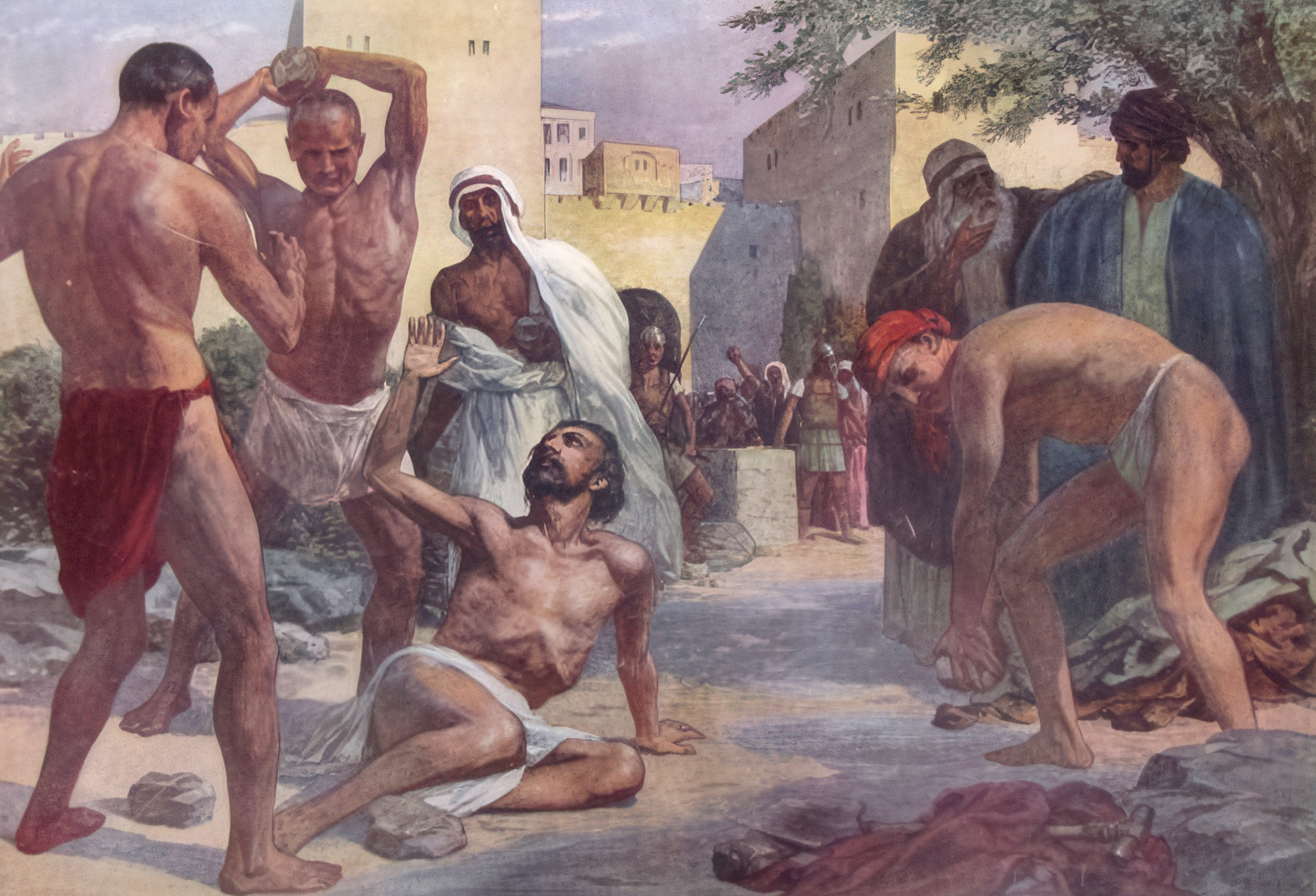



 Ben Hooper is originally from Maryland, having been adopted from Korea and growing up in the Catholic faith. He went to Franciscan University to dive deeper into his faith and eventually graduated with a degree in Business Management. He loves musical theater, sports, spending time with his wife Lily and their dog Kolbe.
Ben Hooper is originally from Maryland, having been adopted from Korea and growing up in the Catholic faith. He went to Franciscan University to dive deeper into his faith and eventually graduated with a degree in Business Management. He loves musical theater, sports, spending time with his wife Lily and their dog Kolbe.
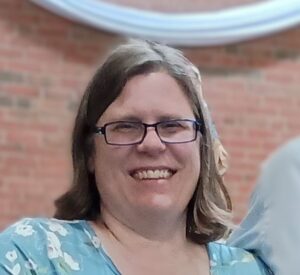 Tami Urcia is a midwestern gal from a large Catholic family. As a young adulthood she was a missionary in Mexico, where she studied theology and philosophy. After returning stateside bilingual, she gained a variety of work experience, traveled extensively and finished her Bachelor’s Degree at Brescia University. She loves organizing and simplifying things, watching her children play sports, deep conversations with close family and friends and finding unique ways to brighten others’ day with Christ’s love. She works full time at Diocesan in the Software Department and manages the Inspiration Daily reflections. She is also a contributing writer on
Tami Urcia is a midwestern gal from a large Catholic family. As a young adulthood she was a missionary in Mexico, where she studied theology and philosophy. After returning stateside bilingual, she gained a variety of work experience, traveled extensively and finished her Bachelor’s Degree at Brescia University. She loves organizing and simplifying things, watching her children play sports, deep conversations with close family and friends and finding unique ways to brighten others’ day with Christ’s love. She works full time at Diocesan in the Software Department and manages the Inspiration Daily reflections. She is also a contributing writer on 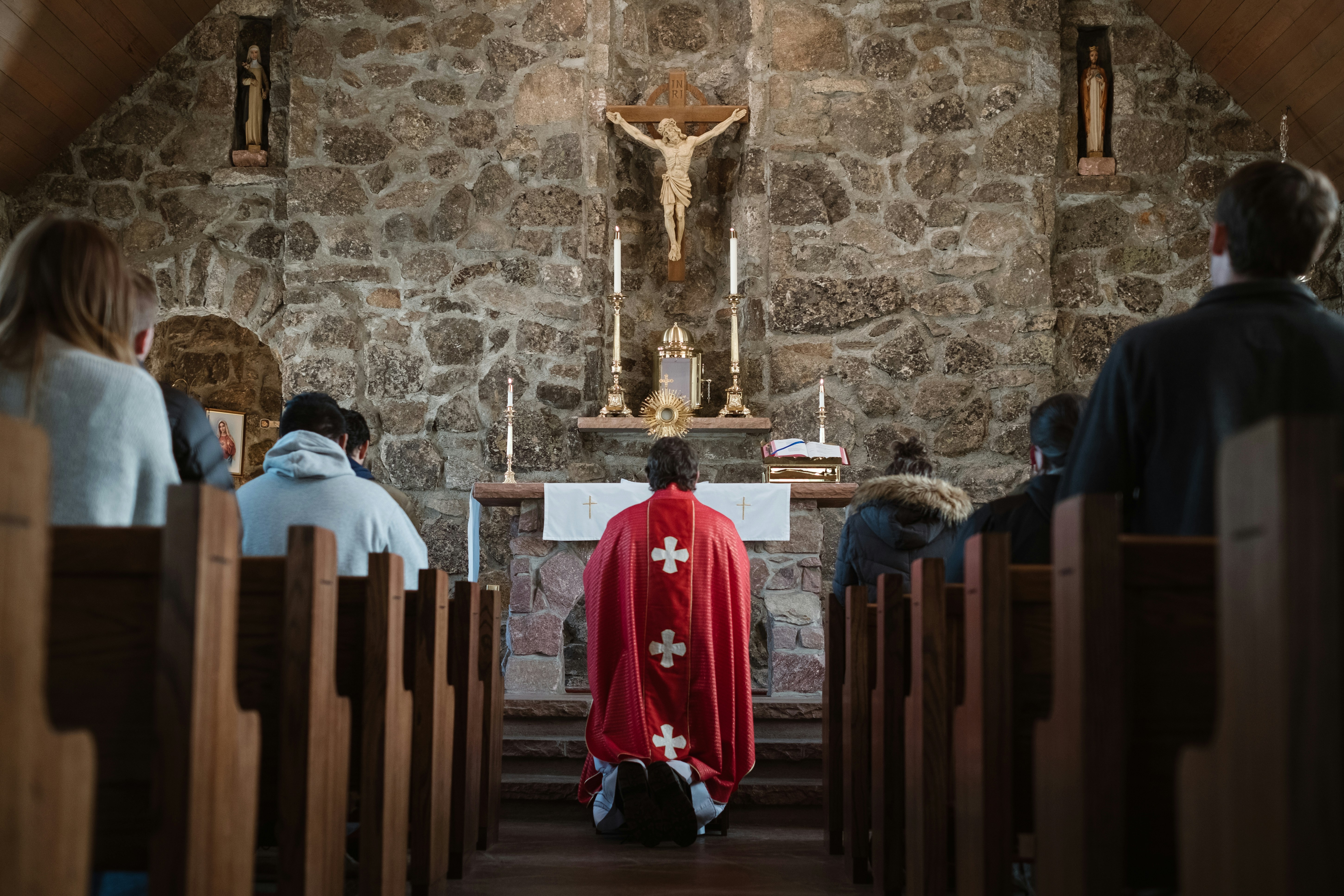
 Kathryn Mulderink, MA, is married to Robert, Station Manager for Holy Family Radio. Together they have seven children (including Father Rob), and eleven grandchildren. She is President of the local community of Secular Discalced Carmelites and has published five books and many articles. Over the last 30 years, she has worked as a teacher, headmistress, catechist, Pastoral Associate, and DRE, and as a writer and voice talent for Catholic Radio. Currently, she serves the Church by writing and speaking, and by collaborating with various parishes and to lead others to encounter Christ and engage their faith. Her website is
Kathryn Mulderink, MA, is married to Robert, Station Manager for Holy Family Radio. Together they have seven children (including Father Rob), and eleven grandchildren. She is President of the local community of Secular Discalced Carmelites and has published five books and many articles. Over the last 30 years, she has worked as a teacher, headmistress, catechist, Pastoral Associate, and DRE, and as a writer and voice talent for Catholic Radio. Currently, she serves the Church by writing and speaking, and by collaborating with various parishes and to lead others to encounter Christ and engage their faith. Her website is 
 Allison Gingras (
Allison Gingras (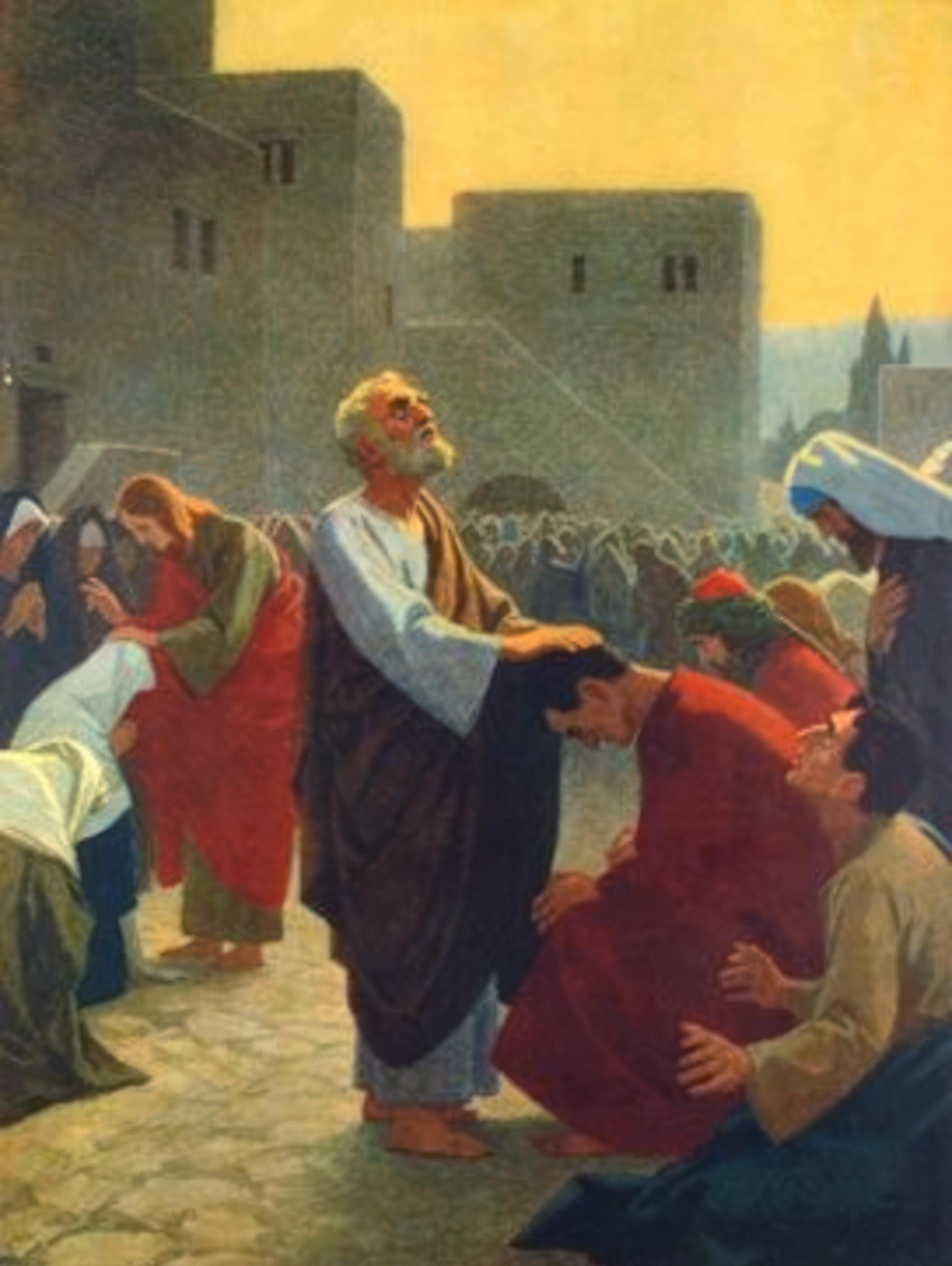
 Pamela Kavanaugh is a grateful wife, mother, and grandmother who has dedicated her professional life to Catholic education. Though she has done her very best to teach her students well in the subjects of language and religion, she knows that she has learned more than she has taught. She lives, teaches, and writes in southwest suburban Chicago.
Pamela Kavanaugh is a grateful wife, mother, and grandmother who has dedicated her professional life to Catholic education. Though she has done her very best to teach her students well in the subjects of language and religion, she knows that she has learned more than she has taught. She lives, teaches, and writes in southwest suburban Chicago.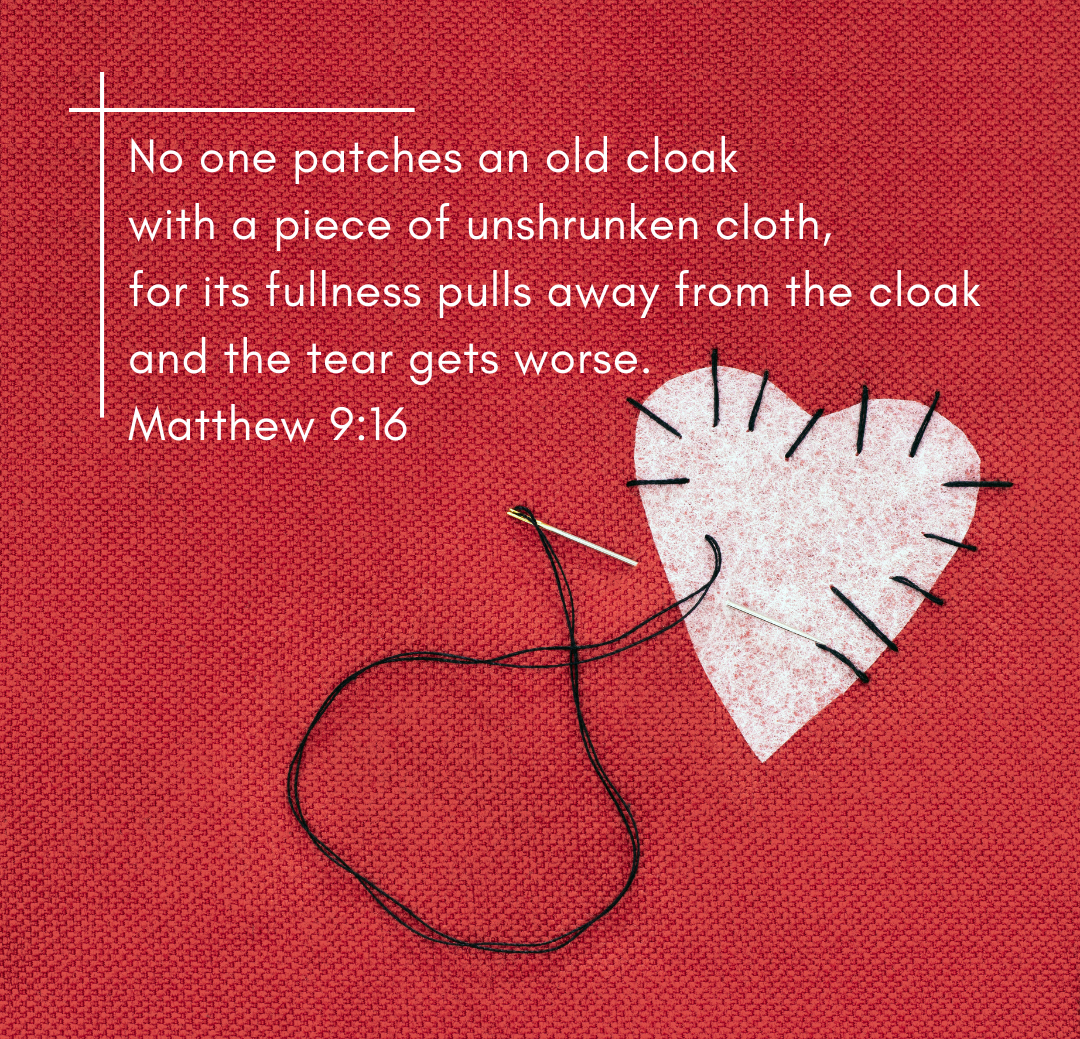
 Nicole Berlucchi is a faith and family blogger (
Nicole Berlucchi is a faith and family blogger (

 Dr. Alexis Dallara-Marsh is a board-certified neurologist who practices in Bergen County, NJ. She is a wife to her best friend, Akeem, and a mother of four little ones on Earth and two others in heaven above.
Dr. Alexis Dallara-Marsh is a board-certified neurologist who practices in Bergen County, NJ. She is a wife to her best friend, Akeem, and a mother of four little ones on Earth and two others in heaven above.